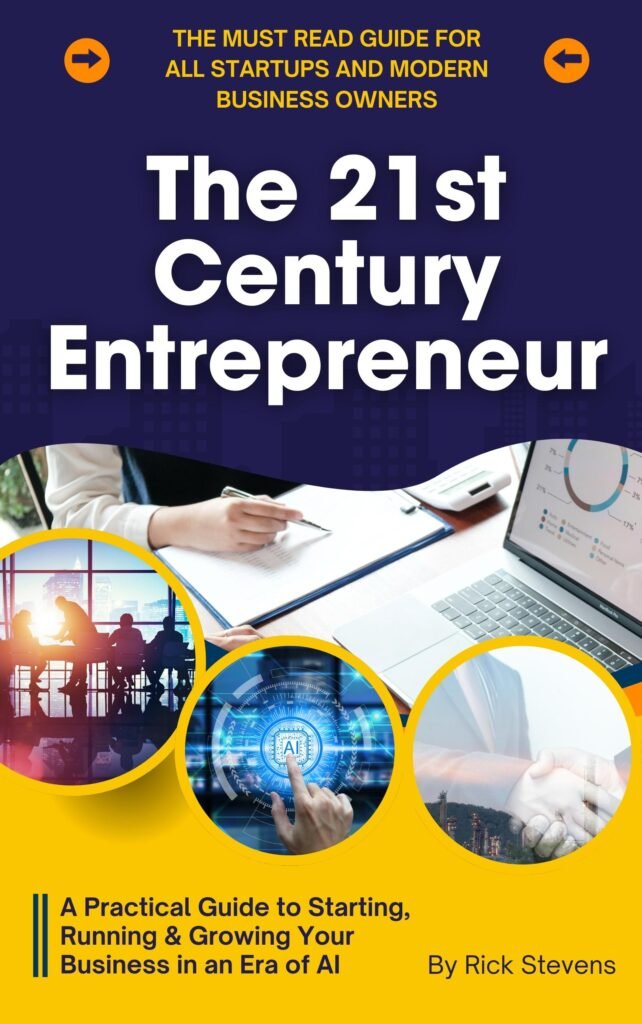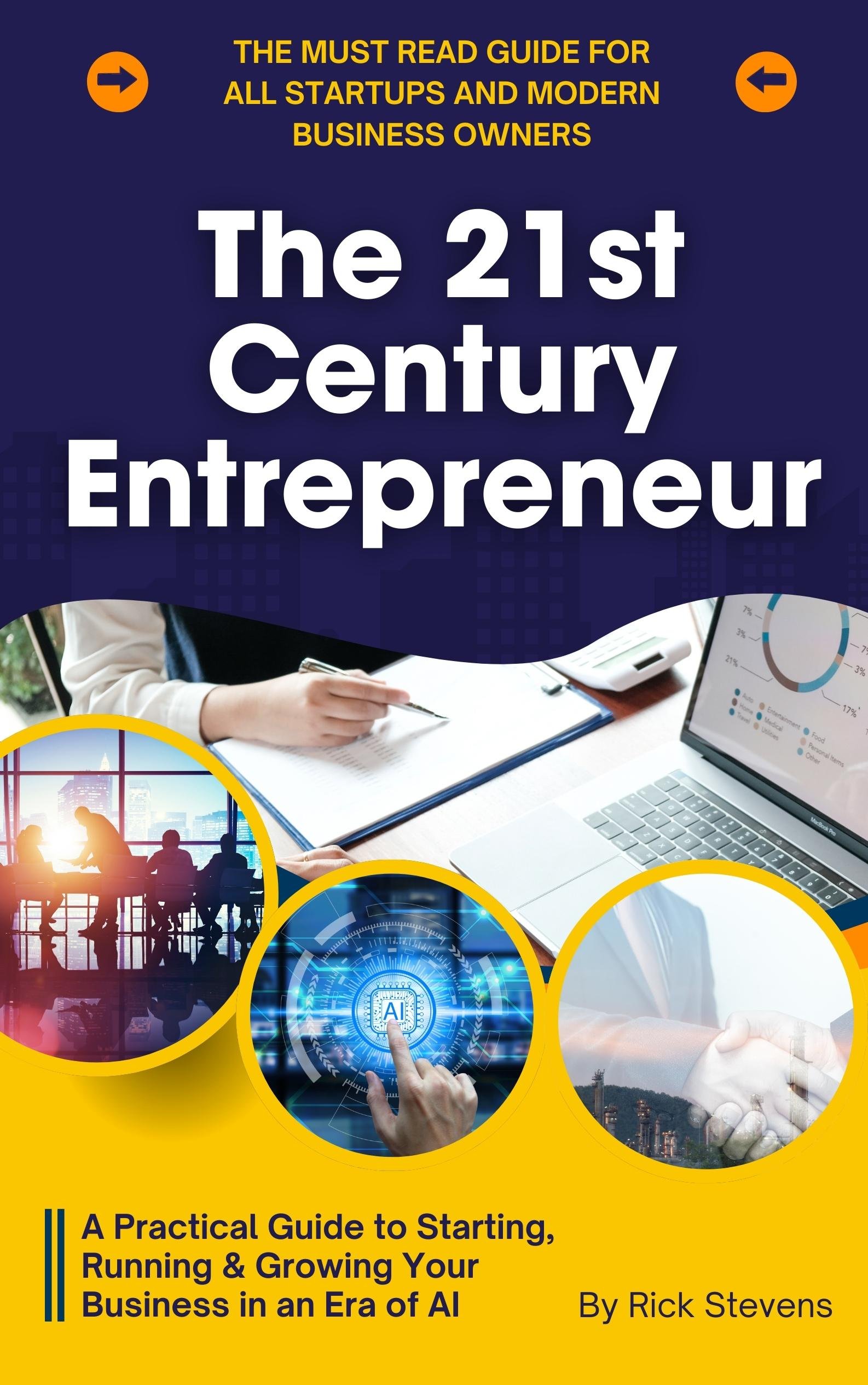Table of Contents
In a world that often emphasizes the importance of formal education, it’s easy to believe that a degree is a prerequisite for success, especially when it comes to entrepreneurship. However, the truth is that many successful entrepreneurs including me have defied conventional wisdom and built thriving businesses without a degree and, in my case gone on to hold leadership roles in international organisations. This begs the question: Can you be an entrepreneur without a degree?
Fortunately, the answer is a resounding yes. While a formal education can provide valuable skills and knowledge, it is not the sole determinant of entrepreneurial success. In fact, some of the most accomplished entrepreneurs, such as Richard Branson who started his first business at 16 and then went on to become one of the world´s most successful entrepreneurs and a personal hero of mine. His and many other stories including mine demonstrate that passion, tenacity, and a willingness to learn can often outweigh a formal degree.
This article dives deep into the world of entrepreneurship and explores the experiences of successful entrepreneurs who have thrived without a degree. We’ll uncover the traits and skills that can propel aspiring entrepreneurs to success, debunking the myth that a degree is a prerequisite for building a thriving business. So, if you’ve ever wondered whether you can be an entrepreneur without a degree, get ready to be inspired and empowered.: Can you be an entrepreneur without a degree?
Debunking the myth: Do you really need a degree to be an entrepreneur?
So many times people have asked me what qualifications I have and although I used to feel a sense of shame, I now feel proud to say “I have earned by badges through hard work and determination” when I am asked “how can you be a successful entrepreneur without a degree? The common narrative surrounding entrepreneurship often includes the idea that a formal degree is essential for success. This belief is deeply ingrained in our education system and societal values. Many people assume that the path to becoming a successful entrepreneur is paved with diplomas and accolades from prestigious universities. However, this perception overlooks the diverse backgrounds and journeys of many successful individuals who have taken the leap into entrepreneurship without a degree.
Don´t get me wrong, I am not trying to say that a degree should be dismissed no matter what career you want to follow but I do believe that even those who leave university with a folder full of certificates and papers still often lack many of the real skills needed for success as an entrepreneur. Indeed I have worked on boards of directors with nothing but degree-educated professionals who may well have extensive knowledge in their field but often lack what to me is “every day common-sense” about the core fundamentals of business.
In reality, entrepreneurship thrives on innovation, creativity, and the ability to solve problems. These qualities do not require formal education. While a degree can provide theoretical knowledge and networking opportunities, it is not the only avenue to gain the necessary skills for entrepreneurship. Many entrepreneurs have learned through hands-on experience, trial and error, and self-directed learning. This practical approach often leads to a deeper understanding of their industry and customer needs, which can be far more beneficial than textbook knowledge.
Moreover, the rise of the digital age has transformed the landscape of entrepreneurship. Online resources, tutorials, and communities provide aspiring entrepreneurs with tools and knowledge that were once only accessible through formal education. The internet has democratized information, allowing anyone with the motivation to learn and grow to access valuable resources. Thus, the myth that a degree is a non-negotiable requirement for entrepreneurship is not only outdated but also misleading, as many paths can lead to success.
My Story – from high school dropout to international leader
You can read more about me here and also find our much more in both of my books – The 21st Century Entrepreneur and Healthy Mind Healthy Profits. The first is a complete guide to starting, running and growing a business and how to harness the power of modern intelligent technology to give yourself a competitive edge in more ways than one.
The second talks about my journey in full detail and gives an in depth account of how I achieved so much whilst battling with mental health issues. In this book I give actionable strategies to implement mental health and wellbeing for all entrepreneurs and leaders both in themselves and throughout their organisations – something that is often overlooked but believe me, being an entrepreneur has challenges like anything and managing your mental health is fundamentally vital for you and your business ventures.
When examining the world of entrepreneurship, countless success stories repeat this theme and illustrate that a degree is not a prerequisite for achieving greatness. One of the most renowned examples as I mentioned earlier is Richard Branson, the founder of the Virgin Group. Branson struggled with dyslexia and dropped out of school at the age of 16 to start his first business, a magazine called Student. He went on to create a global empire that includes music, airlines, and telecommunications. His journey shows that passion and perseverance can outweigh formal education.
Another notable entrepreneur is Steve Jobs, the co-founder of Apple Inc. Jobs enrolled in Reed College but dropped out after just one semester. He continued to audit classes that interested him, such as calligraphy, which later influenced the design aesthetic of Apple products. Jobs’ story emphasizes that unconventional paths can lead to ground-breaking innovations and that the pursuit of passions can yield incredible results, regardless of educational background.


Skills vs. qualifications: What really matters in entrepreneurship
In entrepreneurship, the debate between skills and qualifications is ongoing. While qualifications such as degrees can enhance credibility, the practical skills necessary for success often hold greater significance. Critical thinking, problem-solving, and adaptability are essential traits that entrepreneurs must possess. These skills enable individuals to navigate the complexities of running a business, make informed decisions, and respond to changing market conditions.
Additionally, emotional intelligence and interpersonal skills play a crucial role in entrepreneurship. The ability to understand and relate to others can facilitate networking, negotiation, and team-building. Building relationships with customers, employees, and investors is fundamental to the growth of any business. Entrepreneurs without a formal degree often excel in these areas due to their unique life experiences and diverse backgrounds, which shape their perspectives and approaches to business.
Furthermore, a strong work ethic and a willingness to learn are invaluable assets in the entrepreneurial journey. Many self-taught entrepreneurs have developed expertise in their fields through continuous learning and adaptation. The desire to grow, innovate, and improve can lead to greater achievements than a degree alone. Ultimately, the combination of skills, experience, and determination can be far more impactful on an entrepreneur’s success than formal qualifications.
The 21st Century Entrepreneur – By Rick Stevens
The 21st century has ushered in a new era for entrepreneurs, characterized by rapid technological advancements and changing consumer behaviours. In this modern landscape, entrepreneurs are no longer confined to traditional business models or geographical boundaries. The digital revolution has opened doors for anyone with an idea and the drive to bring it to life. This democratization of entrepreneurship allows individuals from various backgrounds to participate, regardless of their educational qualifications.
Rick Stevens emphasizes that today’s entrepreneurs must be adaptable and innovative. The ability to pivot and respond to emerging trends is crucial in a world where change is constant. Entrepreneurs must also leverage technology to streamline operations, reach a wider audience, and enhance customer experiences. The rise of e-commerce, social media marketing, and online platforms has made it easier for aspiring business owners to establish and grow their ventures without extensive formal education.
Moreover, the 21st-century entrepreneur is increasingly focused on purpose-driven business models. Consumers are seeking authenticity and value alignment in the brands they support. Entrepreneurs who prioritize social responsibility, sustainability, and ethical practices often find greater success in building loyal customer bases. This shift towards purpose over profit highlights that passion, vision, and a commitment to making a positive impact can be just as important, if not more so, than formal educational credentials in the entrepreneurial landscape.
Building a strong network: Networking tips for entrepreneurs without a degree
Networking is a pivotal aspect of entrepreneurship, providing opportunities for collaboration, mentorship, and growth. For entrepreneurs without a degree, building a strong network may require a more strategic approach. One effective method is to attend industry events, workshops, and conferences. These gatherings offer a chance to meet like-minded individuals, potential partners, and investors. Engaging in conversations, sharing experiences, and expressing genuine interest in others can help create lasting connections.
Utilizing social media platforms, particularly LinkedIn, can also be beneficial for entrepreneurs looking to expand their network. By actively participating in discussions, sharing valuable insights, and reaching out to industry professionals, entrepreneurs can establish themselves as thought leaders in their field. Online communities and forums related to their industry can also provide invaluable resources and networking opportunities. Engaging with others on these platforms enables entrepreneurs to learn from peers and gain visibility in their niche.
Furthermore, seeking out mentorship can significantly enhance an entrepreneur’s journey. Connecting with experienced entrepreneurs or industry veterans can provide guidance, advice, and support. Mentors can share their experiences, offer constructive feedback, and introduce entrepreneurs to their networks. Building relationships with mentors can be particularly advantageous for those without formal qualifications, as it allows them to gain insights and knowledge that may otherwise be inaccessible.
Alternative education options for aspiring entrepreneurs
While traditional degrees are not a requirement for entrepreneurship, alternative education options abound for those seeking to enhance their skills and knowledge. Online courses and certifications have gained popularity, offering flexible learning opportunities tailored to specific interests. Platforms like Coursera, Udemy, and Skillshare provide a vast array of courses covering everything from marketing and finance to coding and design. These resources allow aspiring entrepreneurs to learn at their own pace and acquire valuable skills relevant to their business ventures.
Additionally, entrepreneurship incubators and accelerators have emerged as vital resources for aspiring business owners. These programs often provide mentorship, funding, and access to a network of experienced entrepreneurs. Participants can refine their business ideas, develop strategies, and gain practical experience in a supportive environment. Many incubators and accelerators focus on specific industries, allowing entrepreneurs to connect with others who share similar interests and challenges.
Workshops and seminars hosted by local business organizations or community colleges can also provide valuable learning experiences. These events often cover practical topics such as business planning, marketing strategies, and financial management. Engaging with local entrepreneurial communities can help aspiring entrepreneurs gain insights, share experiences, and access resources that may not be readily available through formal education.
Overcoming challenges: How to navigate the entrepreneurial world without a degree
mbarking on an entrepreneurial journey without a degree can present unique challenges. One of the most significant hurdles is overcoming the perception of legitimacy. Many entrepreneurs without formal qualifications may feel the need to prove their credibility to investors, customers, and peers. Developing a strong personal brand through consistent messaging, showcasing expertise, and demonstrating results can help build trust and establish authority in the industry.
Another challenge is the potential knowledge gap that may exist in areas such as finance, marketing, or legal matters. Entrepreneurs must proactively seek out information and resources to fill these gaps. This may involve reading books, attending workshops, or engaging with experts in their fields. Embracing a growth mindset and being open to learning can help entrepreneurs navigate these challenges and make informed decisions.
Additionally, time management can be particularly crucial for entrepreneurs without a degree. Balancing the demands of running a business while continuously learning and growing can be overwhelming. Implementing effective time management strategies, such as setting clear goals, prioritizing tasks, and delegating responsibilities, can help entrepreneurs stay organized and focused. By developing a structured approach to their entrepreneurial journey, they can achieve their objectives while managing the challenges that arise.
Resources and support for entrepreneurs without a degree
If you are asking yourself the question about if you can be a successful entrepreneur without a degree just remember that there is a lot of help out there. The journey of entrepreneurship can be daunting. However, a wealth of resources and support systems is available to help aspiring entrepreneurs navigate their path.
One of the most valuable resources is local small business development centers (SBDCs). These organizations offer free or low-cost consulting services, workshops, and training programs tailored to small business owners. Entrepreneurs can access guidance on business planning, funding options, and marketing strategies.
Online communities and forums also serve as excellent support networks. Platforms like Reddit, Facebook groups, and entrepreneurial websites provide spaces for individuals to ask questions, share experiences, and seek advice from fellow entrepreneurs. Engaging with these communities allows aspiring business owners to learn from others, find inspiration, and gain valuable insights into common challenges faced in the entrepreneurial journey.
Additionally, various non-profit organizations and mentorship programs focus on supporting underrepresented entrepreneurs. These organizations often provide resources, networking opportunities, and access to funding. By connecting with these initiatives, aspiring entrepreneurs can tap into a wealth of knowledge and support that can significantly impact their success.
Conclusion: Can you be an entrepreneur without a degree?
In conclusion to answer the question Can you be an entrepreneur without a degree? It´s a resounding yes. The notion that a formal degree is a prerequisite for entrepreneurship is a misconception that does not hold up against the myriad of success stories and experiences from those who have forged their own paths. Aspiring entrepreneurs should recognize that their unique journeys, skills, and passions are what truly matter. The road to success is not linear, and individuals can thrive through determination, creativity, and a willingness to learn.
As we move forward in an ever-evolving entrepreneurial landscape, it is essential to embrace the diverse backgrounds and experiences that contribute to innovation and growth. For those without a degree, the keys to success lie in building a strong network, seeking alternative education, and leveraging available resources. By nurturing their skills and relationships, aspiring entrepreneurs can carve out their niches and make meaningful contributions to the business world.
Ultimately, the entrepreneurial journey is about embracing one’s uniqueness and pursuing passions with fervor. With the right mindset and a commitment to continuous learning, anyone can become a successful entrepreneur, regardless of their educational background. So, if you’re contemplating your own entrepreneurial aspirations, remember that your journey is valid, and the possibilities are limitless.






